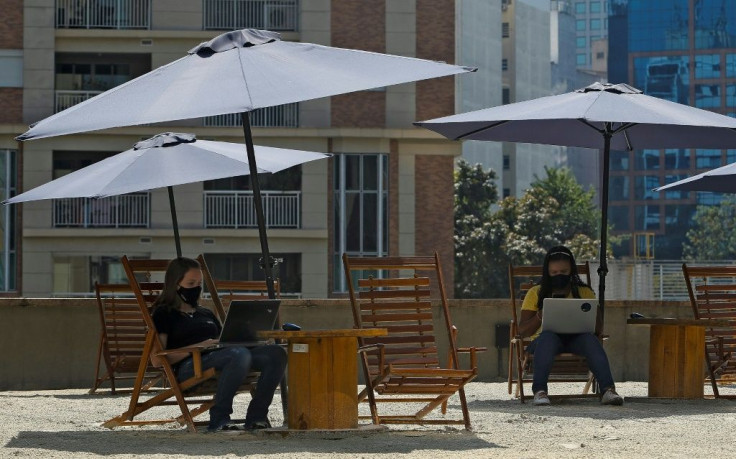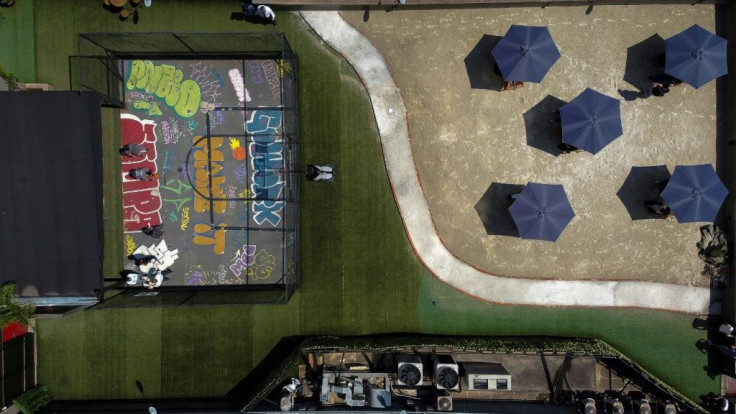'Beach' Coworking Spaces The New Craze In Sao Paulo
After 18 months of being locked up by coronavirus pandemic restrictions, Brazil's largest city Sao Paulo is breathing again, thanks in part to open-air coworking spaces.
Once the domain of internet startups, these coworking businesses have branched out to a wider client base while also moving from offices to rooftops and terraces.
"Forty percent of businesses in GoWork are conventional: lawyers, consultants, auditors," said Fernando Bottura, the young owner of GoWork, one of the first coworking businesses in Sao Paulo that now owns 14 premises covering 32,000 square meters.

"We've had a 300 percent increase in requests for estimates from traditional big businesses (since 2019) like fertilizer and plastic industry companies," said Bottura, dressed in jeans and sneakers.
There are now around 200 coworking spaces in Sao Paulo, "more and more outside with rooftops," said Bottura.
"It no longer makes sense for anyone to rent an office."
In Brazil as a whole, coworking spaces increased six-fold between 2015 and 2019 to almost 1,500.

In the metropolis of 12 million people, "beaches" with parasols are set up on rooftops and terraces, sometimes right next to cafes and even sports courts.
"We take great care of employees' well-being. We know that employees that work in good spirits develop a lot," said 38-year-old Renan Camargo, an online trader using the GoWork space on the city's prestigious Paulista Avenue.
For Mateus Santos, 25, a sales representative in digital marketing, "it made sense to look for an environment that favors flexibility as much as investment."
Even as face masks are compulsory, coworking spaces provide an opportunity to network and interact with people after months of working from home.

B2Mamy, created in 2019 by Danieli Junco, is a "family-friendly" coworking area.
The 500-square-meter space, originally set up for women working in the pharmaceutical industry, is adorned with inspirational messages such as: "Between being a mother and a CEO, choose both."
Children run from one table to another, while their parents take part in videoconferences on their laptops.
"We have spaces for adults, spaces for children, an innovation hub, classes, speed dating for companies to get to know one another," said Junco, 41.
There are even childminders, and all for just 1,000 reais ($180) a year.
Jessica Ulliam Ferrari Rua, 36, the CEO of a digital company, is one of the 60 women that use the coworking space every day.
Lying down on a mattress, she caresses the hair of her three-year-old son Lucas, for whom nap time has arrived.
"He comes to find me when it's time to sleep," she said. "For 10 minutes he's here close by and then I go back to work. It's a relief for a mother and also allows me to work."
With schools closed during the pandemic, Thais Alcantara, 37, was able to teach her five-year-old daughters Paola and Bianca to read and write at B2Mamy.
© Copyright AFP 2024. All rights reserved.





















